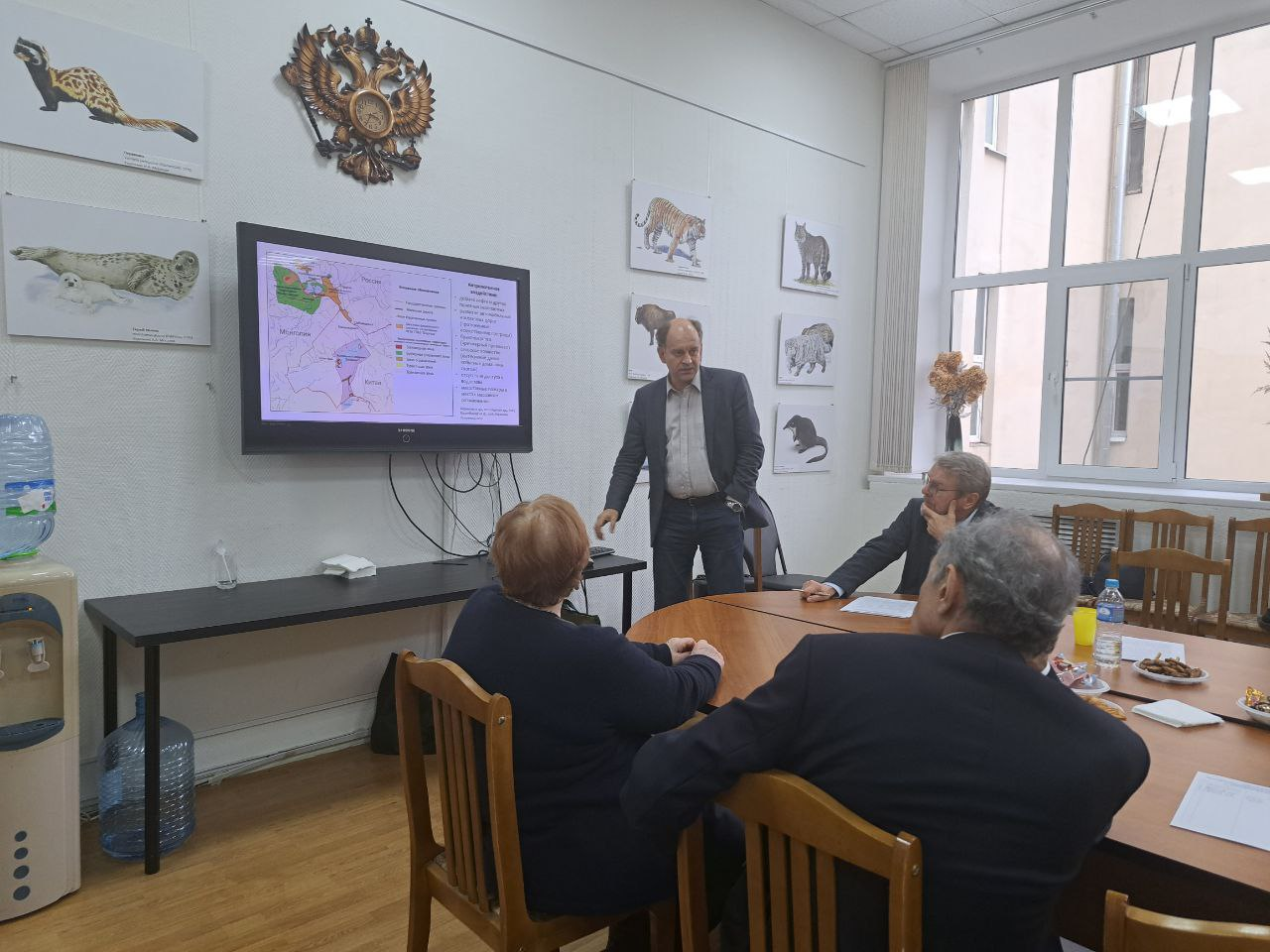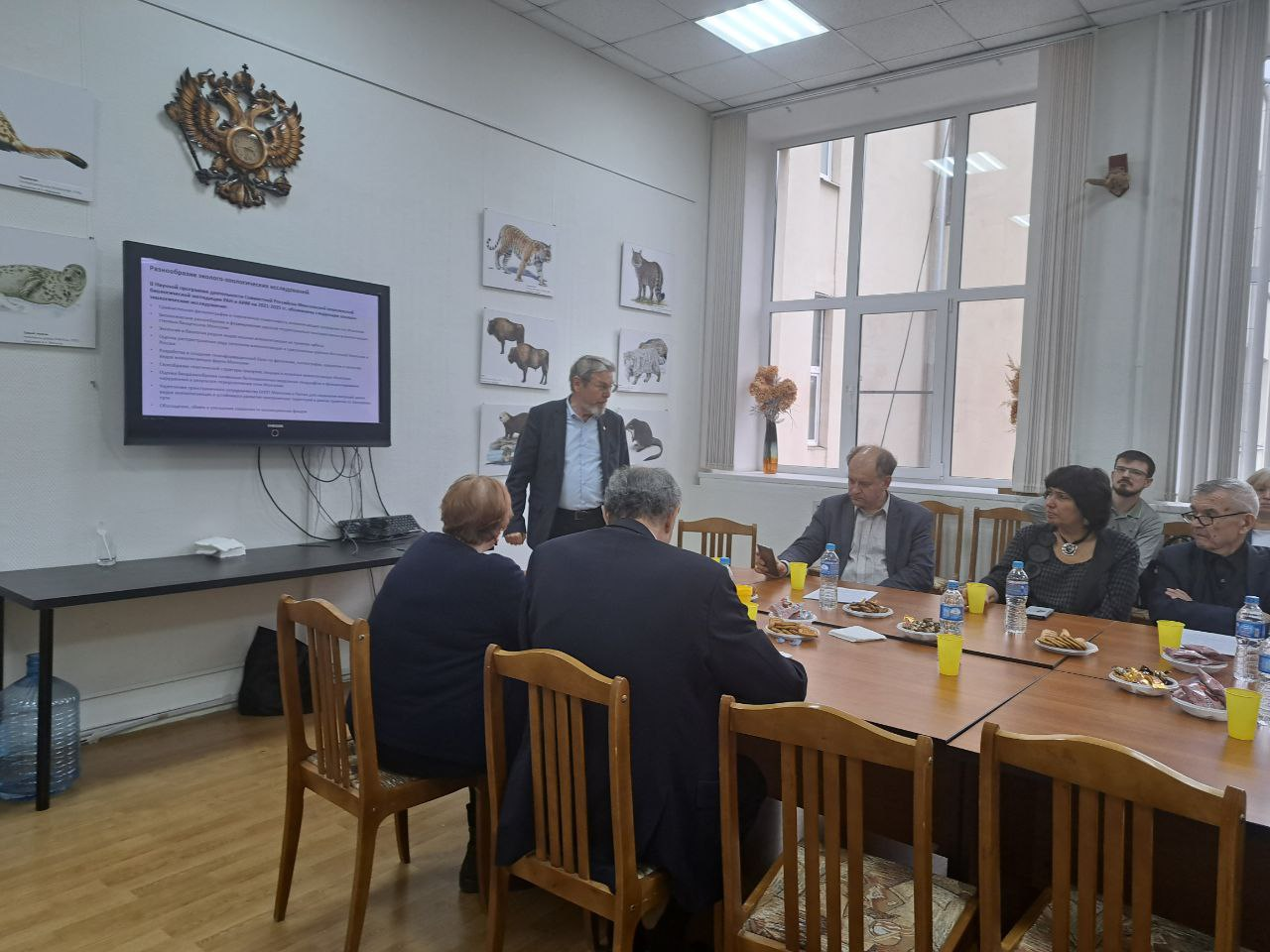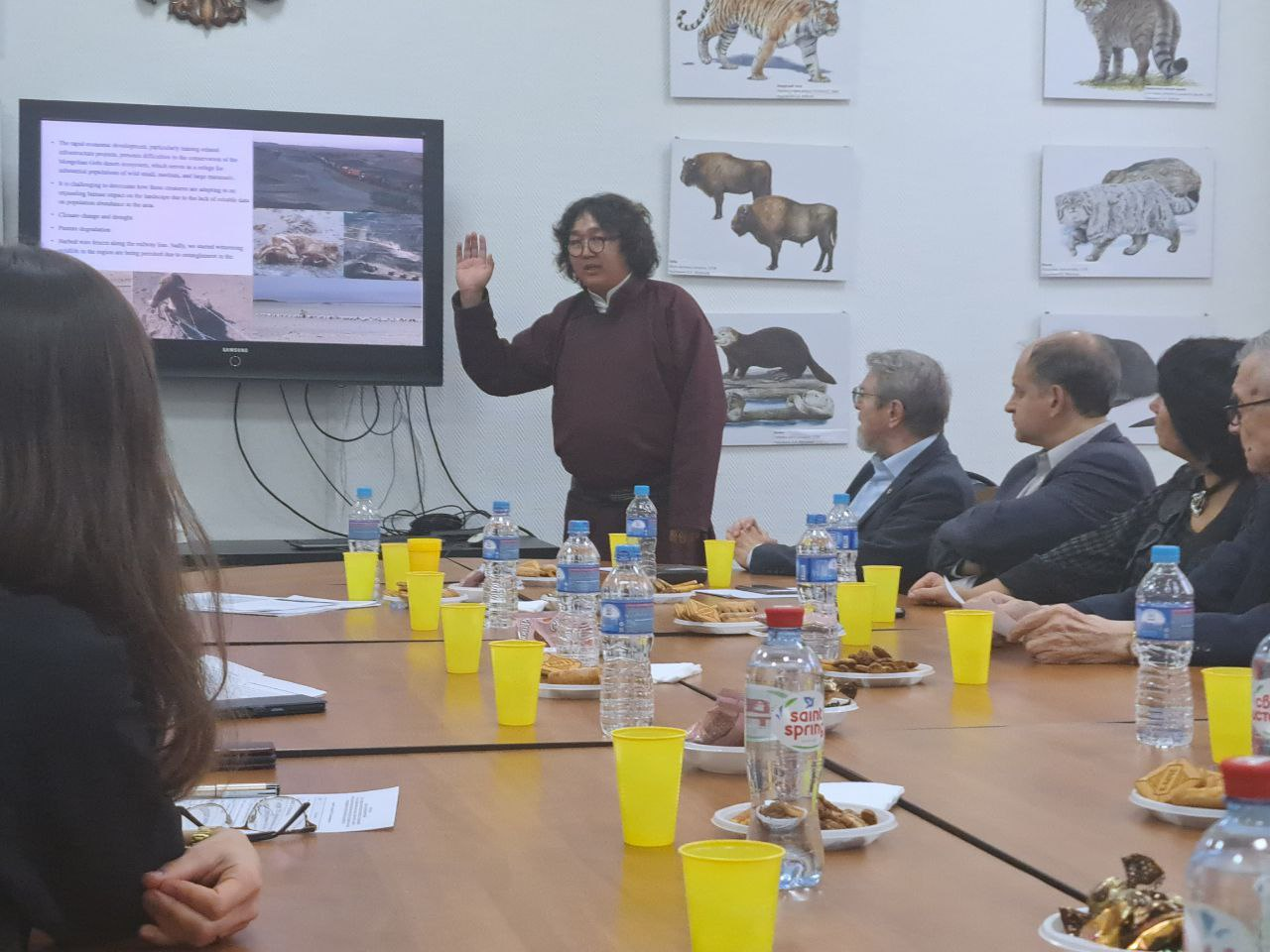
On November 4, 2023, the IEE RAS, with the financial support of the Russian Academy of Sciences, held an international conference “Current directions and prospects for expeditionary research in Mongolia (within the framework of the Joint Russian-Mongolian complex biological expedition of the Russian Academy of Sciences and the Mongolian Academy of Sciences)” dedicated to the 300th anniversary of the Russian Academy of Sciences.
Purpose of the Conference: Providing a platform for scientific discussions and ensuring interaction between researchers from Russia and Mongolia on current issues of organizing and conducting field research within the framework of the scientific program of activities of the Joint Russian-Mongolian Integrated Biological Expedition of the Russian Academy of Sciences and the Mongolian Academy of Sciences for future periods.

The Conference was attended by scientists from the Institute of Ecology and Evolution of the Russian Academy of Sciences, IBR RAS, IGeo ASM, IB ASM, Moscow State University, MIPT, who presented their reports in various fields of biological, chemical, geographical and other disciplines.
The conference was chaired by Academician of the Russian Academy of Sciences, Doctor of Biological Sciences Rozhnov Vyacheslav Vladimirovich, Scientific Director of the Russian part of the expedition.
Corresponding Member of the Russian Academy of Sciences, Doctor of Biological Sciences. Naidenko Sergey Valerievich, director of the Institute of Ecology and Evolution of the Russian Academy of Sciences, welcomed the participants.
Oral reports were presented at the conference:
- Ecological and zoological research in Mongolia: accumulated experience and prospects - Rozhnov V.V., Academician of the Russian Academy of Sciences, Institute of Ecology and Evolution of the Russian Academy of Sciences.
- Monitoring the physiological state and infectious diseases of gazelle in groups in Russia and Mongolia - Naidenko S.V., corresponding member of RAS, IEE RAS.
- The study of bats is one of the current areas of zoological research - Vasenkov D.A., Ph.D., IEE RAS.
- The Gobi Desert is a refuge for vulnerable species of Central Asia - Battogtokh N., Institute of Biology of the MAS.
- Results and prospects for studying terrestrial squirrels of Mongolia - Brandler O.V., Ph.D., IBR RAS.
- Results and prospects of molecular genetic research on the example of Eversman's hamsters - Gureeva A.V., Ph.D. IEE RAS.
- Hypothermia and memory using the example of the Mongolian hamster: prospects for field research - Smagina M.Yu. IEE RAS.
- On the use of some animals of Mongolia in laboratory practice - Feoktistova N.Yu., Doctor of Biological Sciences, IEE RAS.
- Half a century of Russian-Mongolian research into the aquatic ecosystems of Mongolia: results and prospects - Dgebuadze Yu.Yu., acad. of RAS, IEE RAS, Moscow State University.
- Hydrochemical research: water quality problems in the area of Ulaanbaatar - Odsuren B., Ph.D. Institute of Geography and Geoecology of the MAS.
- Preliminary results of environmental monitoring of the Selenga drainage basin in Mongolia and Russia - Kolobov M.Yu., Ph.D., Moscow State University.
- Bacterial biosensors for ecotoxicological studies - Novoyatlova U.S., MIPT.
- Prospects for landscape-ecological research in Mongolia based on remote sensing information - Sandlersky R.B., Ph.D., IEE RAS.
- Ecosystem flows of greenhouse gases in environmental studies - Kurbatova Yu.A., Ph.D., IEE RAS.
- Some aspects of multidisciplinary and scientifically applied research - Bazha S.N., Ph.D., IEE RAS.

During the discussion of reports and additional presentations, the conference participants outlined priority areas of activity within the framework of the Scientific Program of the Expedition. In general, promising areas of research for the Expedition can be combined in the form of the following provisions:
- Floristic-faunistic and biogeocenotic diversity in the ecotone zone of Southern Siberia and Central Asia.
- Environmental risks in natural and natural-anthropogenic ecosystems.
- Environmental problems of terrestrial, aquatic and wetland ecosystems in Mongolia and adjacent territories of the Russian part of the Lake Baikal basin.
- Current state of the network of protected areas in Inner Asia and prospects for its development.
- Desertification as an environmental and economic problem and ways to mitigate its impact on the natural environment of Mongolia.
- Ecological and social problems of environmental pollution.

